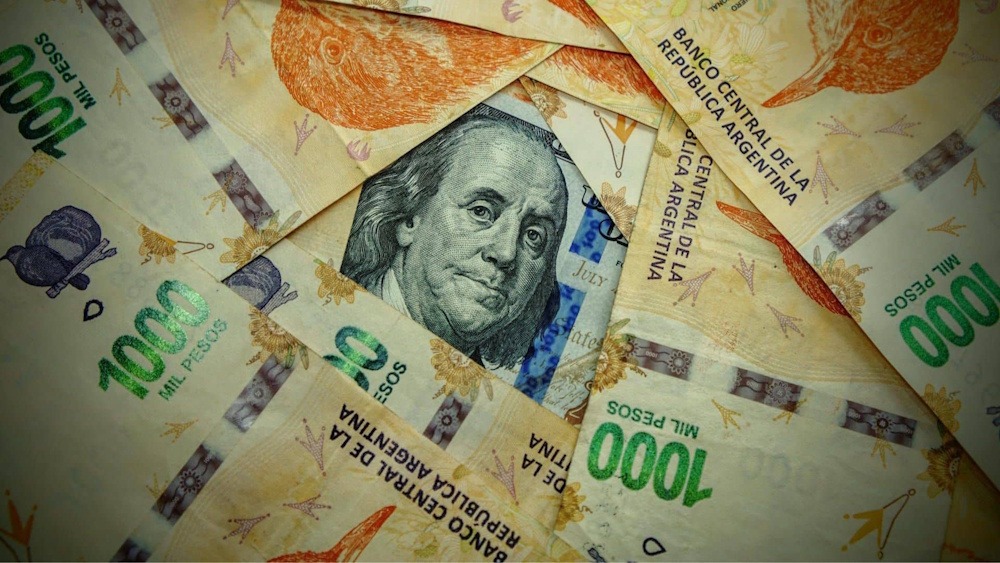Following the surprise landslide victory of the Peronists in the Buenos Aires legislative elections, the retail market saw a 7% increase in the currency rate to as much as AR$1,470 per U.S. dollar, we saw a 20% decline in Argentine equities. The EMBI or country risk index, which assesses the probability of a debt default, rose to 1,100 basis points on Monday, marking an increase of more than 100 points from Friday. Currently, the wholesale exchange rate stands at AR$1,434.
“It is experiencing fluctuations and increased volatility, with no official activity observed thus far,” stated by Gustavo Quintana. Argentine stocks experienced significant declines, with Grupo Supervielle down by 20.2%, Grupo Financiero Galicia falling 20.6%, Transportadora Gas del Sur decreasing by 20%, BBVA dropping 20%, and Banco Macro declining by 19%, among others. Last week, Finance Secretary Pablo Quirno announced that the Treasury would step in to the exchange market to “ensure liquidity” and that the market “operates normally” amid renewed exchange volatility. “It seems that the authorities are observing the market’s adjustments without any interference,” Quintana stated, noting that market estimates suggest the Treasury possesses US$1.1 billion for potential intervention. In April, the government revealed that the exchange rate would fluctuate freely between two rates based on supply and demand, a system referred to as currency bands. Intervention by the Central Bank was permitted solely when the rate exceeded the established band limits.
The maximum threshold is presently AR$1,470. Quintana indicated that the exchange rate might hit the upper limit this week, necessitating action from the Central Bank. On Sunday, the Peronist Fuerza Patria achieved a decisive win in the elections to renew the local legislature in Argentina’s most populous province, securing 47% of the vote. President Javier Milei’s La Libertad Avanza (LLA) secured a notable second place with 34%. Following the vote, Economy Minister Luis Caputo assured that there would be no alterations in the economic landscape. “There will be no economic changes.” Not regarding taxation, monetary policy, or exchange rates,” he posted. A report says the week prior to the elections, indicated that “a landslide victory for Kirchnerism in the regional election would imply a more challenging path for the administration to showcase a favorable outcome in October.”
It predicted that “the exchange rate would likely rise to the upper limit of the band” and that the government would enhance “reserve efforts to manage pesos. The report indicates that this scenario is considered unlikely,” it stated. Financial analyst Gustavo Ber stated that the outcome was “worse than anticipated” and noted that “traders are favoring more liquid options to unwind their positions.” “The scale of the disparities highlights the political instability as we approach the October elections,” Ber added.

